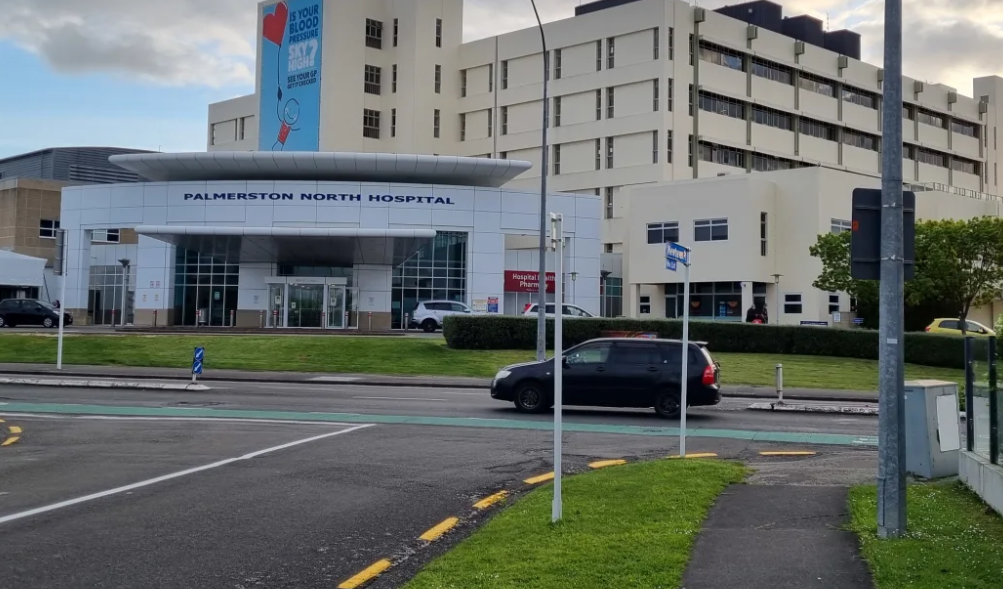Top Stories
Coroner Questions Mental Health Leave After Christmas Tragedy

The tragic death of Gabriella Kathleen Ann Freeland, known as Kate, on December 24, 2021, has raised serious concerns about mental health care protocols in New Zealand. Gabriella died by suicide at her family home in Auckland, just one day after her father, Robert Freeland, picked her up from the psychiatric inpatient ward at Palmerston North Hospital. In her findings released on Monday, Coroner Janet Anderson deemed the decision to grant Gabriella leave for Christmas as “unwise.”
In her report, Coroner Anderson highlighted significant shortcomings in the information provided to Robert Freeland at the time of his daughter’s discharge. “He was not properly informed about the seriousness of Gabriella’s situation,” she noted, emphasizing that crucial details that could have helped mitigate the risk of her ending her life were not communicated.
Gabriella, 28, had a long history of mental health struggles. Diagnosed with Attention Deficit Hyperactivity Disorder (ADHD) as a child, she had been treated with Ritalin and completed a degree in computer science. However, her mental health began to deteriorate in 2017 following the death of her mother, Lydia, from motor neurone disease. Gabriella developed problematic drinking habits and exhibited increasingly erratic behavior.
By mid-2020, her situation had worsened, prompting multiple consultations with general practitioners and emergency medical centres. She expressed concerns about potential liver damage from alcohol, but her symptoms were often attributed to anxiety. Gabriella’s family reported her missing in August 2020 after she left Auckland without notice. She was later found by police in June 2021 in a distressed state, possessing items suitable for self-harm.
Following her admission to the psychiatric unit after an arrest for “train hopping,” Gabriella was classified as suicidal and diagnosed with a psychotic illness, including schizophrenia. Clinicians observed that psychosis was a major aspect of her clinical profile. She was initially placed under compulsory treatment due to her high suicide risk.
After being discharged in September 2021, Gabriella continued to receive visits from mental health workers. On December 17, 2021, she was assessed by her community psychiatrist, who noted her lack of suicidal intent but recognized her ongoing disorganization and non-compliance with medication. Just one day after this assessment, Gabriella attempted suicide but was saved by her landlady and re-admitted to the hospital.
During this hospitalization, she expressed relief at being alive and looked forward to Christmas with her family. Her psychiatrist later indicated that Gabriella’s symptoms were more aligned with ADHD rather than schizophrenia, leading to a treatment plan adjustment.
On December 23, 2021, Robert Freeland arrived to pick up Gabriella, unaware of the recent suicide attempt or the full extent of her mental health condition. He attended a meeting with hospital staff, where he was informed that Gabriella was “all right now.” Unfortunately, information regarding her recent suicide attempt and the risks associated with her discharge was not adequately communicated.
After spending a joyful day together shopping and visiting family, Gabriella was found dead in her room later that afternoon. Her brother, Jared Freeland, discovered her body and has since called for changes in the mental health services, describing the situation as a “national disgrace.”
In response to Gabriella’s death, the MidCentral District Health Board conducted an independent review, which found that Gabriella had a tendency to downplay her risk, a factor that was not adequately considered during her discharge planning. Staff members expressed concerns about the leave process and voiced uncertainty over whether Robert Freeland was fully aware of his daughter’s suicide risk.
The review identified two critical indicators that should have prompted a reassessment of Gabriella’s risk: her change in diagnosis and her recent history of serious suicide attempts. The findings included recommendations for improvements in assessment, treatment, and discharge procedures.
Health New Zealand acknowledged the recommendations made by the coroner and outlined new procedures aimed at enhancing patient care during leave, including proper risk documentation. The psychiatrist who treated Gabriella stated the decision to grant her leave was made after an intensive assessment period, influenced by requests from Gabriella and her father.
Despite the multidisciplinary team’s intentions, the outcome was devastating. Experienced psychiatrist, Associate Professor Ben Beaglehole, who advised the coroner, pointed out that the change in diagnosis from schizophrenia to ADHD occurred within a very short timeframe, which may have impacted the decision-making process regarding Gabriella’s leave.
Coroner Anderson emphasized the importance of avoiding hindsight bias in evaluating the case. While she could not conclusively determine whether Gabriella would have survived had she not been granted leave, she criticized the timing of the decision. “There was no opportunity to properly consider the impact of the changed diagnosis or the recent alteration in medication before Gabriella left the unit with her father,” she stated.
The coroner’s recommendations aim to enhance the safety and well-being of patients in mental health care, highlighting the critical need for accurate communication and comprehensive risk assessment in discharge planning.
-

 Sports2 months ago
Sports2 months agoNetball New Zealand Stands Down Dame Noeline Taurua for Series
-

 Entertainment2 months ago
Entertainment2 months agoTributes Pour In for Lachlan Rofe, Reality Star, Dead at 47
-

 Entertainment4 weeks ago
Entertainment4 weeks agoNew ‘Maverick’ Chaser Joins Beat the Chasers Season Finale
-

 Sports1 week ago
Sports1 week agoEli Katoa Rushed to Hospital After Sideline Incident During Match
-

 Sports2 months ago
Sports2 months agoSilver Ferns Legend Laura Langman Criticizes Team’s Attitude
-

 Politics1 month ago
Politics1 month agoNetball NZ Calls for Respect Amid Dame Taurua’s Standoff
-

 Entertainment2 months ago
Entertainment2 months agoKhloe Kardashian Embraces Innovative Stem Cell Therapy in Mexico
-

 Sports5 days ago
Sports5 days agoJamie Melham Triumphs Over Husband Ben in Melbourne Cup Victory
-

 World3 months ago
World3 months agoPolice Arrest Multiple Individuals During Funeral for Zain Taikato-Fox
-

 Sports3 months ago
Sports3 months agoGaël Monfils Set to Defend ASB Classic Title in January 2026
-

 Entertainment1 month ago
Entertainment1 month agoTyson Fury’s Daughter Venezuela Gets Engaged at Birthday Bash
-

 Sports1 month ago
Sports1 month agoHeather McMahan Steps Down as Ryder Cup Host After Controversy

















